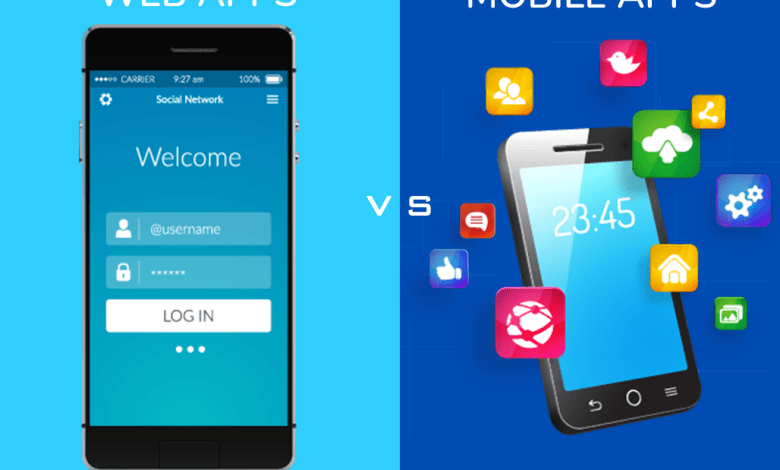Mobile Apps And Web Apps: Which One Do You Prefer?

Nowadays mobile phones have become an integral part of our daily lives. Whether it’s checking emails, surfing the internet, or reading the newspapers online we don’t bother to start up our desktops for that we just use our phone for those things. But what gives our phones such abilities that they are able to do these things. Well, it is the native mobile apps and web apps that run on our mobile devices. You won’t believe how popular they are. Heck with their entry into the digital platform new opportunities has opened up for developers. As they are able to generate a steady income funnel through jobs in offices in the real world and also earn from home online through jobs in the digital platform as well.
People often mix mobile apps and web apps as the same thing. But are they the same? Both run on the mobile platform but that doesn’t mean that they are the same thing. Cause depending on their built, specs, and accessibilities both have different capabilities. Thus their uses vary as well. Keep reading onwards and you will learn about how different and capable they are in what they specialized in and why do they are valued so much both in the real world and the online industry.
Mobile Apps Vs Web Apps
Build for certain platforms
Mobile apps are built for their respective platform mobile os such as Android or iOS. They are only eligible for the platform that their codes are based upon. In other words, they are not supported outside the platform they are built for. But that’s not the case when it comes to web apps. Cause rather than living on the device they run in the browser. So as long as the platform that you want to run it on has browser access it can be run anywhere.
Complex function handling
When it comes to handling complex functionalities such as optimizing or handling other actions on your native device mobile apps are the way to go. As they are built in such a way that they are able to completely utilize the features of their respective platform. But that’s not the case when it comes to web apps. As their reach is as far as the browser they run on. So such complex functionalities can’t be operated by it at the moment.
Install and updates
The web apps don’t require you to download or install updates as they are done automatically from the platform that they are hosted on. But it’s different when it comes to mobile apps. As they are needed to be installed from the store of the respective platforms. The same with the update. Though it might seem a hassle there’s a bright side to this. In many cases, it’s seen that some updates have bugs that might cause the app to be unusable but if you know that beforehand then you don’t need to update as you have full control over it. And if your update app is a native pre-installed app then all you need to do is uninstall it. As for the third party apps, you can find the old version on the web and install them. But you don’t get this type of control in web apps. As they are done automatically and if there’s a problem with the domain then you need to till it gets fixed as you have no control over it.
Required space
Another awesome thing about web apps is that they don’t take much space as they run on the browser. But that’s not the case for mobile apps. Since they run on the platform and are dependent on it they need to be installed in the machine which requires space. As for the size of the space well that depends on the app requirement.





